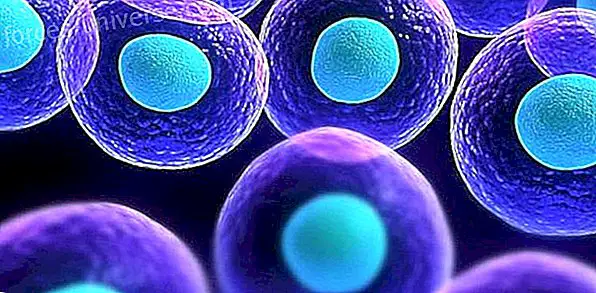
TEACHER: In one of your talks to the children you said that when a problem arises one must solve it immediately. How is that to be done?
Krishnamurti: To solve a problem immediately, you have to understand the problem. Is understanding a problem a matter of time or is it a matter of intense perception, of intensity in seeing? Let's say I have a problem, that I am vain. It is a problem for me in the sense that it creates a conflict, a contradiction within me. It is true that I am vain and it is also true that I do not want to be. First I must understand the fact that I am vain. I have to live with that fact. I must not only be intensely aware of the fact, but understand it in its entirety. Now, is understanding a matter of time? I can see the fact immediately, right? And the instantaneity of perception. to see, dissolve the fact. When I see a cobra, there is instant action. But I don't see vanity the same way. When I see vanity, I like it and therefore I continue with it, or I don't want it because it creates conflict. If it does not generate conflict, there is no problem.
Perception and understanding do not belong to time. Perception is a matter of intensity in seeing, a seeing that is total.
What is the nature of that seeing something totally? What gives one the capacity, the energy, the vitality, the impulse to face something immediately, with all its undivided energy? At the moment that one has divided the energy, the conflict arises and, therefore, there is no seeing, there is no perception of something in its entirety. Now, what gives him the energy to make him jump when he sees a cobra? What are the mechanisms that make the whole being, organic and psychological, jump without any hesitation, so that the reaction is immediate? What has intervened in this immediacy? Several things have intervened in that immediate action: fear, natural protection, which must be present, the knowledge that the cobra is deadly.
Now, why don't we have the same energetic action regarding the dissolution of vanity? I am taking vanity as an example. There are several causes that have contributed to my lack of energy. I like vanity, the world is based on it, it is the foundation of the Social behavior model, it gives me a sense of vitality, a certain quality of dignity, of superiority, the impression that I am a little better than others. All this obstructs that energy that is needed to dissolve vanity. So, either I analyze all the causes that have hindered my action, preventing me from having the energy to face vanity, or I see the fact immediately. Analysis is a process of time, a process of postponement. While I am analyzing, vanity continues and time will not end with it. In this way, I have to see vanity as a whole, but I lack the energy to see. Now, gathering dissipated energy requires that I not only do it when I am facing a problem such as vanity, but I must be accumulating energy all the time, even when there is no problem. We have no problems permanently. There are times when we don't have any. If in those moments we accumulate energy - accumulate in the sense of being awake -, then, when the problem arises, we can face it without going through the analysis process.
TEACHER: There is another difficulty. When there are no problems and we are not accumulating this energy, some form of mental activity takes place.
Krishnamurti: There is a waste of energy in mere repetition, in reacting to memory, to experience. If you look at your own mind, you will see that a pleasant event is repeated over and over again. You want to return to him, you want to think about him, and therefore the event acquires some momentum. When the mind is alert, there is no dissipation. Is it possible to let that momentum, that thought flourish? This implies never saying "this is right or wrong", but living the thought to the end, feeling that the thought can flourish so that it ends by itself.
Should we address the problem differently? We have been talking about creating a generation with a new quality of mind. How will we do it? If I were a teacher here, this would be my fundamental interest, and it is obvious that a good educator carries this interest in the heart: to produce a new mind, a new sensibility, a new feeling towards the trees, the sky, the sky, the rivers, create a new consciousness, not the old consciousness recast into a new mold. I mean a completely new mind, not contaminated by the past. If that is my interest, how do I do it?
In the first place, can a new mind of such nature be produced? Not a mind that is a continuation of the past in a new mold, but an uncontaminated mind. Is that feasible, or should the past continue in the present to be modified and put into a new mold? In which case there is no new generation: it is the old generation that is repeated in a new way. I believe it is possible to create a new generation. And I ask: How should I do, not only to experience this in myself, but to express it to the student?
If I see something experimentally in me, I cannot stop expressing it to the student. Undoubtedly, it is not a matter of me and the other, but something shared, right? How, then, should I produce a mind that is not contaminated? You and I are not newborns, we have been contaminated by society, by Hinduism, by education, by family, society, newspapers. How do we make our way through pollution? I say that this is part of my existence and I accept it? What do I do, sir? Here we have a problem: our minds are contaminated. For older people it is more difficult to break through. You are comparatively young and the problem is to decontaminate the mind. How should it be done?
Either it is possible or it is not. So how should one discover whether it is or not? I would like you to get fully into this.
Do you know what the word "denial" means? What does it mean to deny the past, to deny that one is Hindu? What do you mean by the word "deny"? Have you ever denied anything? There is true denial and false denial. Denial that obeys a motive is a false denial. To deny with a purpose, with an intention, to deny with an eye on the future is not to deny. If I deny something in order to get something else, that is not denial. But there is a denial that does not obey a motive. When I deny without knowing what the future holds for me, that is the true denial. I deny being a Hindu, I deny belonging to any organization, I deny any particular creed, and in that same denial I become completely insecure. Do you know such a denial, have you ever denied anything? Can he deny the past in this way, deny without knowing what the future holds? Can you deny the known?
TEACHER: When I deny something, say Hinduism, there is a simultaneous understanding of what Hinduism is.
Krishnamurti: What we discussed is the possibility of producing a new mind. A mind that is contaminated cannot be new. So we are talking about decontamination and if this is possible. And in relation to that, I began by asking what you mean by denial, because it seems to me that denial has a lot to do with this. Denial has to do with a new mind. If I deny neatly, without roots, without motives, that is the real denial. Now, is it possible? Look, if I don't completely deny the society in which politics, economics, social relations, ambition, greed are included, if I don't deny all that completely, it is impossible to discover what it means to have a new mind. Therefore, the first step in laying the foundation is to deny the things that I have known. Is that possible? It is obvious that drugs will not produce a new mind: nothing will produce it, except a total denial of the past. Is that possible? What do you say? And if I have breathed the perfume, if I have seen, if I have liked a denial of such nature, how will I do it to communicate it to the student? He must have the known in abundance: mathematics, geography, hysteria, and yet must be fully and inexorably free from the known.
TEACHER: Sir, all sensations leave a residue, a disturbance that leads to various types of conflict and other forms of mental activity. The traditional religious approach consists in giving up these feelings through discipline and denial. But in what you say there seems to be a high receptivity towards such sensations, so that the sensations are perceived without any distortion and without residue.
Krishnamurti: That is the question. Sensitivity and sensation are two different things. A mind that is a slave of thought, of sensation, of feelings, is a residual mind. Enjoy the waste, enjoy thinking about the pleasant world and each thought leaves a mark, which is the residue. Every thought about a particular pleasure that you have experienced leaves a mark that contributes to numbness. It is obvious that it hinders the mind; discipline, control and repression still dull her. I say that sensitivity is not sensation, that sensitivity means that there are no marks, that there are no residues. What, then, is the issue?
TEACHER: Is the denial of which you speak different from that of restricting sensations?
Krishnamurti: How do you see those flowers, how do you see their beauty and are completely sensitive to them so that there is no residue, no memories, so that when I see them again an hour later, Do you see a new flower? That is not possible if you see it as a sensation and associate that sensation with flowers, with pleasure. The traditional way is to completely exclude the pleasurable because such associations awaken other forms of pleasure; That's why you discipline yourself not to look. Removing the sensation with a scalpel is something immature. How then should the mind and eyes do to see the extraordinary color without leaving any mark?
I am not asking for a method. How does that state arise? Otherwise we cannot be sensitive. It is like a photographic plate that receives impressions and renews itself. It is exposed and, however, becomes negative for the next impression. Thus, all the time, the mind is purifying itself of every pleasure. Is that possible or instead of dealing with facts we are playing with words?
The fact that I see clearly is that each residual sensitivity, each sensation dulls the mind. I deny that fact, but I don't know what it means to be so extraordinarily sensitive that the experiences leave no trace and yet see that flower with fullness, with tremendous intensity. I see it as an undeniable fact that every feeling, every feeling, every thought leaves a mark, shapes the mind, and that those impressions cannot in any way produce a new mind. I see that having a mind with traces implies death, so I deny death. But I don't know the other. I also see that a good mind is sensitive, without the residue of experience. Experiment, but experience leaves no sequels from which I draw more experiences, more conclusions, more death.
I deny the one and I don't know the other. How will this transition from the denial of the known to the unknown take place?
How do you deny one? Does one deny the known, not in great dramatic events, but in small events? Do I deny when I'm shaving and remember how good I had in Switzerland? Does one deny the memory of a pleasant time? Does one realize it and deny it? That is not dramatic, it is not spectacular, nobody finds out. And yet, this constant denial of small things, these small deletions, small erasures, and not just an impressive great cleanliness, are essential. It is essential to deny thought as a memory, pleasant or unpleasant, every minute of the day and as it emerges. You do this for no reason, you don't do it in order to enter the extraordinary state of the unknown. You live in the Rishi Valley and think of Bombay or Rome. This creates conflict, blunts the mind, divides it. Can you see it and discard it? Can you keep discarding it, not because you want to enter the unknown? You can never know what the unknown is, because the moment you recognize it as the unknown you are again in the known. The recognition process is a process by which the known continues. As I do not know what the unknown is, I can only do the following: get rid of thought as it emerges. You see that flower, feel it, see its beauty, its intensity, its extraordinary brilliance. Then you go to the room where you live, which is ugly, not well proportioned. You live in that room but you have a sense of beauty and start thinking about the flower; then it catches the thought as it arises and erases it. Now, at what depth do you discard, from what depth you deny the flower, deny your wife, your gods, your economic life? You have to live with your wife, with your children, with this horrible and monstrous society. It cannot depart from life. But when he completely denies thought, pain and pleasure, his relationship is different. So there must be a total denial, not partial, not a conserve the things he likes and deny the ones he doesn't like. Well, how do you convey to the student what you have understood?
TEACHER: You have said that in teaching and learning there is a state of intensity in which one does not say "I am teaching him something." Now, does this constant erase the traces of thought have something to do with the intensity of the state of teaching-learning?
Krishnamurti: Obviously. Look, I feel that teaching and learning are the same. What is taking place here? I am not teaching him, I am not his teacher or authority. I simply explore and communicate my exploration. You can take it or leave it. The position is the same with respect to the students.
TEACHER: What then does the teacher have to do?
Krishnamurti: You can only find out when you are constantly denying. Have you ever tried? It is as if he could not sleep for a single minute during the day.
TEACHER: That not only requires energy, but also releases a lot of energy
Krishnamurti: But first you must have the energy to deny.
About education From the last work edited by Editorial Edaf
Original at: http://agoragines.blogspot.com.es/2013/01/sobre-la-verdadera-negacion-j.html Seen at: http://www.scoop.it/t/el-amarna/






